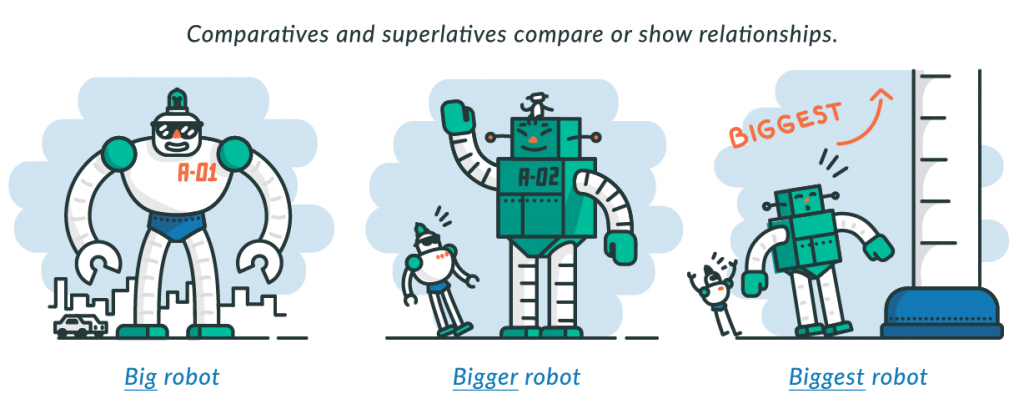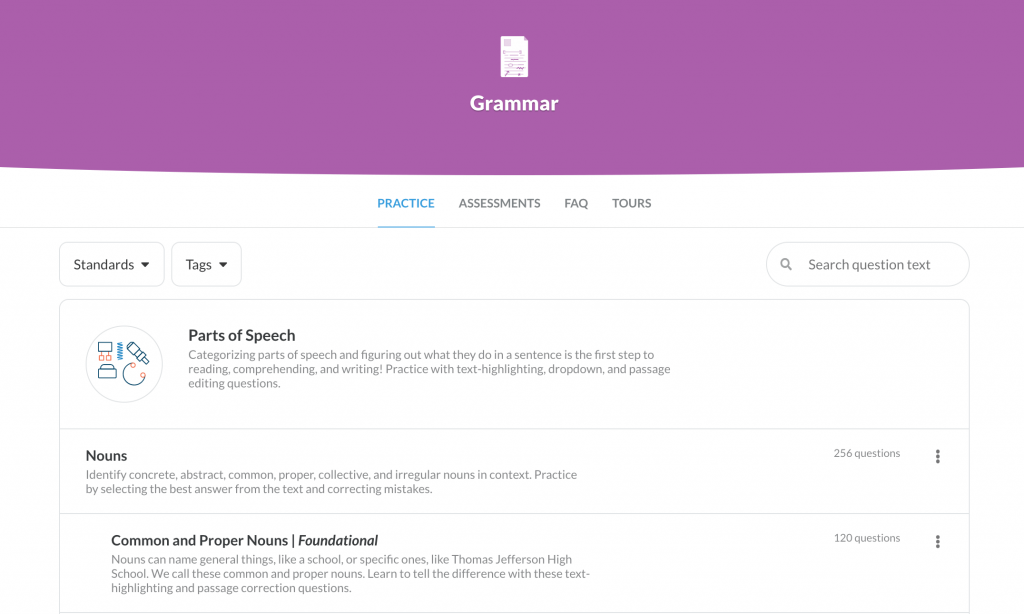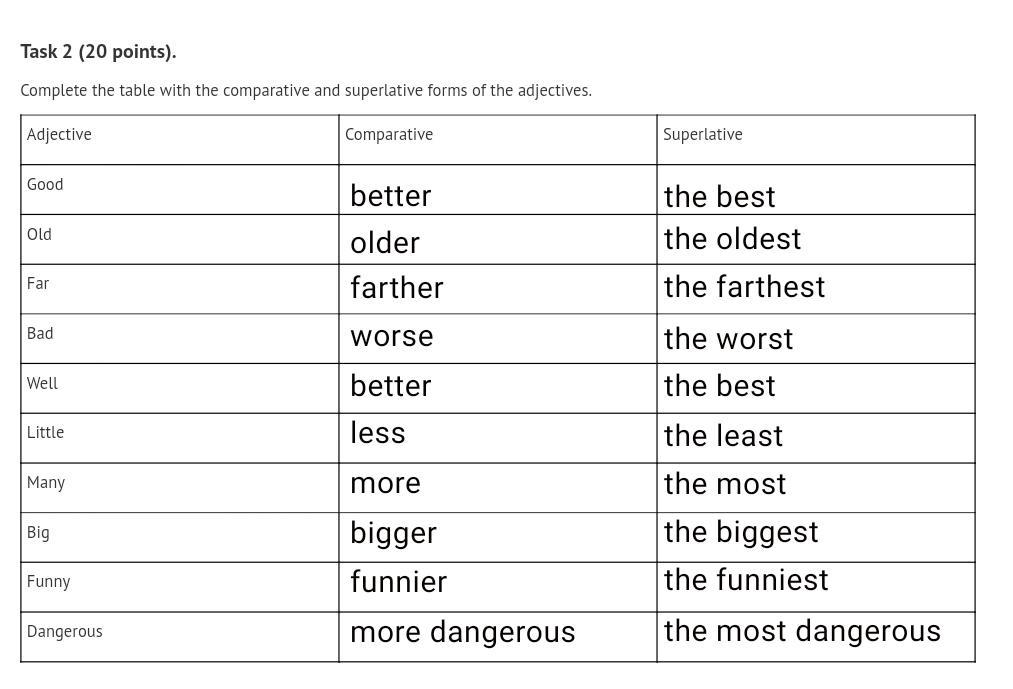
Степени сравнения используются в повседневной речи каждого человека в независимости от языка, на котором он говорит. Однако если на русском можно лишь изменить форму прилагательного, в английском языке намного больше нюансов. Например, «well». Сравнительную степень нельзя образовать суффиксами «-er», «-est» или дополнительными словами «more» или «the most». Как тогда это сделать?
Содержание
- Перевод
- Well: наречие или прилагательное
- Степени сравнения well
- Well в сравнительной степени
- Превосходная степень well
Перевод
На первый взгляд слово кажется простым, однако его часто переводят неправильно. Транскрипция слова: [wel] (по-русски [вэл]), а перевод – хорошо. Например: well read (перевод – хорошо читаемый), well made (перевод – хорошо сделанный).
В некоторых контекстах имеет такие значения, как: отлично, прекрасно, успешно, удачно, вполне.
Может быть частицей «ну» (=so): Well, I thought it would be much more interesting. (Ну, я думал, это будет гораздо интереснее).
Переводчик также может обозначать данным словом существительное, если оно стоит в совокупности с предлогом «of», как «кладезь», «источник». Например: Their content is a well of useful historical data. (Их содержание – кладезь полезных исторических данных).
Well: наречие или прилагательное
«Well» – это наречие, но никак не прилагательное. Ошибку делают именно в этой области, переводя его как «хороший». Но для данного прилагательного в английском языке другое слово – «good».
Степени сравнения well
«Well» является положительной степенью сравнения (Positive Degree). Например: He is never suspicious or envious and almost always thinks well of others. (Он никогда не бывает подозрительным или завистливым и почти всегда думает хорошо о других).
Для образования «degrees of comparison in English» есть 2 основных правила:
- либо с помощью суффиксов;
- либо с помощью вспомогательных слов.
Однако нельзя сказать weller/more well или the wellest/the most well. Значит, это исключение. Как происходит составление форм сравнения?
Well в сравнительной степени
Сравнительная степень этого наречия (Comparative Degree) формируется путём полного изменения слова. Слово поменяется на «better», транскрипция – [ˈbetə] ([бéтте]). Переводится как «лучше».
Интересно, что у прилагательного «хорошо» данная степень будет такой же.
Примеры употребления:
- Your life becomes better only when you become better. (Ваша жизнь станет лучше только тогда, когда лучше станете вы сами).
- You won’t find a better car in the neighbourhood. (Вы не найдёте машины лучше в этих окрестностях).
- Our providing customers, quality, price and service are better than in any other company. (Наше обеспечение клиентов, качество, цена и сервис лучше, чем в любой другой компании).
Если требуется сравнить что-то с чем-то, то используется союз «than»:
- My mother knows me better than anyone else. (Моя мать знает меня лучше, чем кто-либо другой).
- Some believe that this year her results at figure skating were better than the last season. (Некоторые считают, что в этом году ее результаты в фигурном катании были лучше, чем в прошлом сезоне).
- Walking alone is still better than staying at home all day. (Гулять в одиночестве все же лучше, чем сидеть дома весь день).
Превосходная степень well
Превосходная степень сравнения (Superlative Degree) также, как и сравнительная, образуется полным изменением слова. «Well» преобразуется в «the best», транскрипция – [ðiː/ðə best] ([зе бест]). Переводится как «лучше всего».
Примеры использования:
- Russian is the language we speak and which we understand the best. (Русский – язык, на котором мы говорим и который понимаем лучше всего).
- 1–2‑room apartments in peripheral areas are best suited for renting. (Для сдачи в аренду лучше всего подойдут 1–2‑комнатные квартиры в периферийных районах).
- People ask when is the best age to go to the first form. (Люди спрашивают, в каком возрасте лучше всего идти в первый класс).
Стоит отметить, что артикль «the» в превосходной степени сравнения ставится всегда.
Little: степени сравнения
Is there a word that means «more well», in the same way that «better» means «more good»? In common parlance most people just use «better» for this purpose, but this sounds wrong and is a nagging irritation for me. «Better» is an adjective while «well» is an adverb, and so they’re strictly incompatible in how they can be used.
I realise there isn’t a commonly used word for this but I’m interested to know if there’s something archaic that and has fallen into disuse.
asked Nov 7, 2010 at 18:17
Will VousdenWill Vousden
4421 gold badge3 silver badges12 bronze badges
1
The Oxford English Dictionary says the following. Historically, the comparative of the adverb “well” was “bet” (the link requires subscription) whereas the comparative of the adjective “good” has been “better”. The use of the word “better” as an adverb appeared around the 13th century, and it superseded “bet” by around 1600.
As Kosmonaut writes in a comment on the question, in modern English, the word “better” is used as both an adjective and an adverb. The Merriam-Webster dictionary agrees on this.
answered Nov 7, 2010 at 20:00
Tsuyoshi ItoTsuyoshi Ito
6,2695 gold badges29 silver badges27 bronze badges
2
Well can be modified with an appropriate adverb such as «exceedingly» to indicate a comparison.
answered Nov 7, 2010 at 18:49
2
Continue Learning about English Language Arts
What is the comparative and superlative form of well?
Well is an irregular adjective. The comparative form is better,
the superlative form is best.
well better best
What is the comparative form of the word well?
BETTER
What is the comparative form of sad?
Sadder is the comparative form of sad.
What is the comparative form of nature?
«Nature» is a noun and, as such, does not have a comparative
form.
What is the comparative form of in?
The comparative form of in is inner.

Comparatives and superlatives are special types of adjectives used when comparing two or more things. The trickiest thing when using comparatives and superlatives is making sure we are writing them the correct way, but with a little practice, comparatives and superlatives can quickly be mastered.
In this post we’ll review what comparatives and superlatives are, the rules for how to form these adjectives the correct way, and how to use them effectively in a sentence.
After reviewing the information below, test yourself with a post-assessment quiz and practice with our high quality, standards-aligned questions here.
The Basics of Comparatives and Superlatives

What is a Comparative?
Comparative Adjectives are words used to describe a noun by comparing it to another noun. We usually think of ‘er’ words like bigger or smaller, but they can be a little trickier than that.
The way we form comparative adjectives is based on the number of syllables in the adjective and whether or not the adjective ends with the letter ‘y’.
What is a Superlative?
Superlative Adjectives are words used to describe a noun when comparing it to two or more nouns to the highest or lowest degree. Think: big, bigger, biggest, or small, smaller, smallest.
Like with comparative adjectives, it’s not always as simple as adding ‘est’. The number of syllables and whether or not the adjective ends with the letter ‘y’ also help us determine how to form a superlative adjective.
One Syllable Adjectives
Let’s look at a chart showing the comparative and superlative forms of the word for the most basic one syllable adjectives, where we add ‘er’ for the comparative and ‘est’ for the superlative. *Note: when the adjective follows the CVC, or consonant, vowel, consonant spelling, the final consonant is doubled.
|
ADJECTIVE |
COMPARATIVE |
SUPERLATIVE |
|
Big |
Bigger |
Biggest |
|
Tall |
Taller |
Tallest |
|
Small |
Smaller |
Smallest |
|
Hot |
Hotter |
Hottest |
Comparative Adjectives:
- I am faster than my friend.
- Arizona is hotter than Alaska.
Superlative Adjectives:
- She is the tallest student.
- That was the shortest movie in the series.
Notice the other words around the comparative and superlative adjectives. Most comparatives are followed by ‘than’, and most superlatives follow the word ‘the’.
Two Syllable Adjectives
Now let’s look at a chart showing the comparative and superlative forms of the word for adjectives with two syllables. Comparative adjectives with two syllables can be formed by making the ‘er’ ending or by adding the words ‘more’ or ‘less’ before the adjective.
For superlative adjectives, you make the ‘est’ ending but use the word ‘most’ or ‘least’ instead of ‘more’ or ‘less’.
|
ADJECTIVE |
COMPARATIVE |
SUPERLATIVE |
|
Happy |
Happier |
Happiest |
|
Crazy |
Crazier |
Craziest |
|
Nervous |
More/Less Nervous |
Most/Least Nervous |
|
Massive |
More/Less Massive |
Most/Least Massive |
|
Quiet |
Quieter or More/Less Quiet |
Quietest or Most/Least Quiet |
*Note: In many cases, either form of the comparative or superlative can be used, but there is generally a ‘most common’ usage. Additionally, the adjective does not need to end in ‘y’ in order to use the ‘er’ or ‘est’ usage, as the last example in the table shows. Your ear will often be able to recognize what sounds best.
Comparative Adjectives:
- She tends to be less passive than her brother.
- This quiz is simpler than the last one.
Superlative Adjectives:
- Fall is the busiest shopping season.
- This is the most rapid method of delivery.
Notice again how the comparative adjectives are followed by ‘than’, and superlative adjectives follow the word ‘the’.
Three or More Syllable Adjectives
The chart below shows the comparative and superlative forms of the word for adjectives that are three or more syllables long. In these cases, we always add ‘more’ or ‘less’ before a comparative adjective and ‘most’ or ‘least’ before a superlative adjective.
|
ADJECTIVE |
COMPARATIVE |
SUPERLATIVE |
|
Mysterious |
More/Less Mysterious |
Most/Least Mysterious |
|
Complicated |
More/Less Complicated |
Most/Least Complicated |
|
Wonderful |
More/Less Wonderful |
Most/Least Wonderful |
Comparative Adjectives:
- I tend to be more reluctant than my friends when trying new things.
- The noise at the pool was less bothersome than the noise on the beach.
Superlative Adjectives:
- Her second compilation was the most exceptional of them all.
- Those were the least comfortable couches I have ever sat on.
Irregular Adjectives
When using comparative and superlative adjectives, it is important to note that there are a handful of irregular adjectives that don’t follow the rules above. The chart below shows these irregular adjectives along with their comparative and superlative forms.
|
ADJECTIVE |
COMPARATIVE |
SUPERLATIVE |
|
Good |
Better |
Best |
|
Bad or Ill |
Worse |
Worst |
|
Little (Amount) |
Less |
Least |
|
Far (Distance) |
Farther |
Farthest |
|
Far (Extent) |
Further |
Furthest |
|
Many or Much |
More |
Most |
Comparative Adjectives:
- I did better than the rest of my class on the final.
- She ran farther in this race than she did in the last one.
Superlative Adjectives:
- That was the best birthday present ever!
- I bought the least expensive souvenir that I could find.
Return to the Table of Contents
2 Tips for Recognizing and Using Comparative & Superlative Adjectives
Tip #1: Rearrange your sentence to use different forms of the adjective
We can use different forms of the adjective if we adjust our sentence to fit the adjective.
Here are some examples we used for one syllable adjectives:
Comparative Example:
- I ran faster than my friend.
Now, let’s rearrange the sentence in a way that allows us to use the superlative form of the adjective.
- Between my friend and I, I ran the fastest.
Here, the comparison is still being made between two people; however, when we limit the nouns that we are comparing, we can use the superlative form of the adjective. Notice this sentence follows the other superlative characteristic of using the word ‘the’ before the adjective.
Superlative Example:
- That was the shortest movie in the series.
Now, let’s rearrange the sentence in a way that allows us to use the comparative form of the adjective.
- That was shorter than any other movie in the series.
Here, the comparison is still being made to two or more movies, and we are still describing it to the lowest degree. By adding ‘any other’ before ‘movie in the series’, we can use the comparative form of the adjective. Notice that this sentence also now follows the other comparative characteristic of using the word ‘than’ after the adjective.
Tip #2: Remember your spelling rules before making the comparative or superlative form of the adjective
Any time we change the ending of a word, we need to take into account how the word is normally spelled.
If the adjective already ends with an ‘e’, only add ‘r’ for the comparative and ‘st’ for the superlative.
- Wide becomes Wider or Widest.
- Brave becomes Braver or Bravest.

If the adjective ends with a consonant + short vowel + consonant (CVC), we typically double the last consonant.
- Big becomes Bigger or Biggest.
- Hot becomes Hotter or Hottest.
If the adjective ends with a ‘y’, we change the ‘y’ to and ‘i’.
- Early becomes Earlier or Earliest.
- Silly becomes Sillier or Silliest.
Return to the Table of Contents
Applying the Basics: Comparative and Superlative Adjective Review & Practice
Now that you understand what comparatives and superlatives are, and how to use them properly in a sentence, let’s practice identifying them and checking for proper usage.
Remember, comparative adjectives describe a noun by comparing it to another noun. Superlative adjectives describe a noun by comparing it to two or more nouns to the highest or lowest degree.
Comparative Adjectives Exercises & Review
Complete the quick exercise below to assess your mastery of comparative adjectives.
In the sentences below, select the option that accurately shows the comparative form of the adjective. Remember, a comparative adjective describes a noun by comparing it to another noun.
1. Lucas is (oldest/older) than Lily.
- older
2. Alaska is (colder/more cold) than Florida.
- colder
3. I am (more worried/worrieder) about this exam than the last one.
- more worried
4. This map is (more confusing/most confusing) than my calculus homework.
- more confusing
5. I ran (further/farther) than my best friend did yesterday.
- Farther
Superlative Adjectives Exercises & Review
Complete the quick exercise below to assess your mastery of superlative adjectives.
In the sentences below, select the option that accurately shows the superlative form of the adjective. Remember, a superlative adjective describes a noun by comparing it to two or more nouns to the highest or lowest degree.
1. Playing games with your family is the (funner/funnest) way to pass the time when you’re cooped up at home.
- funnest
2. My brother is the (most annoying/annoyingest) person to have around when looking for peace and quiet.
- most annoying
3. As soon as possible, we hope to go to the (beautifulest/most beautiful) tropical island.
- most beautiful
4. Reading a good book is the (most leisurely/more leisurely) way to relax.
- most leisurely
5. Multitasking is the (less efficient/least efficient) method of productivity.
- least efficient
Comparative & Superlative Exercises
Use your knowledge of both comparative and superlative adjectives in the exercise below.
Identify the comparative and superlative adjectives in the sentences below. There may be more than one in a sentence. Make sure you specify which are comparative and which are superlative.
1. I worked on the least complicated homework before starting the more challenging work.
- Comparative: more challenging
- Superlative: least complicated
2. She is taller than the other girls in her class, but she is not the tallest student in the class.
- Comparative: taller
- Superlative: tallest
3. I find direct instruction to be the most straightforward way learning new material.
- Superlative: most straightforward
4. I believe the most obvious answer is correct more often than not.
- Comparative: more often
- Superlative: most obvious
5. Finishing first in the finals was the most fulfilling accomplishment after a sectional performance that was harder than she expected.
- Comparative: harder
- Superlative: most fulfilling
For additional practice, check out the Comparative and Superlative content on Albert.
Return to the Table of Contents
Try for Yourself: Comparative and Superlative Adjectives Quiz
Feeling confident in your understanding of comparative and superlative adjectives?
Take this short quiz to see what you’ve learned:
1. Do comparative or superlative adjectives show the highest degree of a quality?
- Answer: Superlative Adjectives
- Correct Explanation: That’s right! Superlative adjectives describe a noun by comparing it to two or more nouns to the highest or lowest degree. Comparative adjectives describe a noun by comparing it to another noun.
- Incorrect Explanation: Sorry, that’s not right. Remember, comparative adjectives describe a noun by comparing it to another noun. Superlative adjectives describe a noun by comparing it to two or more nouns to the highest or lowest degree.
2. Do comparative or superlative adjectives sometimes use the additional modifier ‘more’?
- Answer: Comparative Adjectives
- Correct Explanation: That’s right! Since comparative adjectives do not describe a noun by comparing it to two or more nouns to the highest or lowest degree, they can use modifiers such as ‘more’.
- Incorrect Explanation: Sorry, that’s not right. Remember, superlative adjectives describe a noun by comparing it to two or more nouns to the highest or lowest degree, so they would use modifiers such as ‘most’ or ‘least’. Comparative adjectives do not describe a noun by comparing it to two or more nouns to the highest or lowest degree, they can use modifiers such as ‘more’.
3. Does the following sentence use a comparative or superlative adjective?
People from Chicago often agree that deep dish pizza is better than thin crust pizza.
- Answer: Comparative Adjective
- Correct Explanation: That’s right! In this sentence, deep dish pizza is being compared to thin crust pizza. The word ‘better’ is a comparative adjective since it is comparing one type of pizza to another.
- Incorrect Explanation: Sorry, that’s not right. Remember, superlative adjectives describe a noun by comparing it to two or more nouns to the highest or lowest degree. In this sentence, deep dish pizza is being compared to thin crust pizza. The word ‘better’ is a comparative adjective since it is comparing one type of pizza to another.
4. Is the underlined section of the sentence below a comparative or superlative adjective?
The tree in front of my house is the tallest tree in the neighborhood.
- Answer: Superlative Adjective
- Correct Explanation: That’s right! Superlative adjectives describe a noun by comparing it to two or more nouns to the highest or lowest degree. The word ‘tallest’ describes the tree to the highest degree compared to the other trees in the neighborhood.
- Incorrect Explanation: Sorry, that’s not right. Remember, Remember, comparative adjectives describe a noun by comparing it to another noun. Superlative adjectives describe a noun by comparing it to two or more nouns to the highest or lowest degree. The word ‘tallest’ describes the tree to the highest degree compared to the other trees in the neighborhood.
5. Which of the following sentences correctly uses a comparative adjective?
A. I thought your portion was the biggest than mine.
B. I thought your portion was bigger than mine.
- Answer: B
- Correct Explanation: That’s right! Comparative adjectives usually end with the letters ‘er’ because they are describing a comparison with one other noun.
- Incorrect Explanation: Sorry, that’s not right. Superlative adjectives usually end with the letters ‘est’ because they are describing a comparison with two or more nouns to the highest or lowest degree. Additionally, superlative adjectives are not typically followed by the word ‘than’. Comparative adjectives usually end with the letters ‘er’ because they are describing a comparison with one other noun.
6. Which of the following sentences correctly uses a superlative adjective?
A. That was the least memorable movie I’ve seen in a long time.
B. That was the less memorable movie I’ve seen in a long time.
- Answer: A
- Correct Explanation: That’s right! Superlative adjectives with three syllables use the words ‘least’ or ‘most’ because they are describing a comparison with two or more nouns to the highest or lowest degree.
- Incorrect Explanation: Sorry, that’s not right. Comparative adjectives with three syllables use the words ‘more’ or ‘less’ because they are describing a comparison with one other noun. Superlative adjectives with three syllables use the words ‘least’ or ‘most’ because they are describing a comparison with two or more nouns to the highest or lowest degree.
For additional practice with comparative and superlative adjectives, check out our practice on Albert.io: Comparatives and Superlatives.
Return to the Table of Contents
Teacher’s Corner for Comparatives and Superlatives
While it’s true that comparative and superlative adjectives are a foundational grammar skill, the Common Core English Language Progressive Skills Chart shows that even elementary-level skills “require continued attention in higher grades as they are applied to increasingly sophisticated writing and speaking.”
For specific standards addressing comparative and superlative adjectives, check out the Common Core State Standards site!
Albert’s Comparative and Superlative practice can be used for much more than homework!
Our assessments can be used as pre-and post-tests to measure student progress. Our pre-made quizzes can be used as bell-ringers, exit tickets, and more!
In addition to our pre-made assessments, you can also use our assignments feature to create your own quizzes and assessments.
Return to the Table of Contents
Summary on Comparative Adjectives and Superlative Adjectives
A Comparative Adjective is a word that describes a noun by comparing it to another noun. Comparative adjectives typically end in ‘er’ and are followed by the word ‘than’.
A Superlative Adjective is a word that describes a noun by comparing it to two or more nouns to the highest or lowest degree. Superlative adjectives typically end in ‘est’ and are preceded by the word ‘the’.
Comparative and Superlative Adjectives are words we often see and use in our writing. Make sure you are structuring your comparative and superlative adjectives appropriately for the number of syllables in the adjective.
Practice makes perfect! Use our Comparative and Superlative practice on Albert’s grammar course!
Need help preparing for your Grammar exam?

Albert has hundreds of grammar practice questions with detailed explanations to help you master concepts.
Ответ:
Объяснение:
вроде всё правильно
Приложения:

Parogrelka:
Брагина Илария, английский, 7 класс, 22 неделя
currymancho:
Божечки,спасибо!
aledozorov:
спасибо!!!
currymancho:
кто поможет с информатикой?дс currymancho#6113 взамен помогу с географией
VincentVertra:
currymancho, Вы не устали, везде это писать?
VincentVertra:
автор ответа, спасибо Вам большое за ответ!
shamarishka:
это точно првельно?
shamarishka:
????
